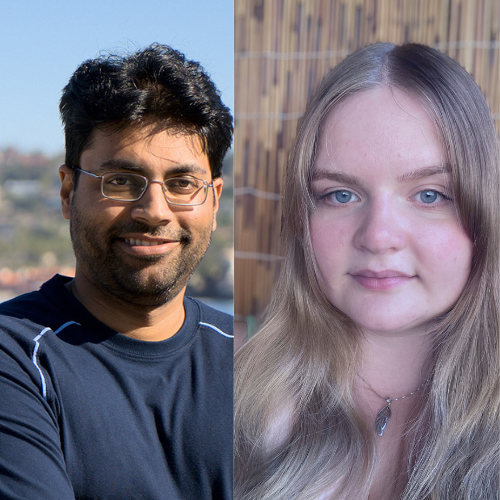UC SAN DIEGO COMPUTER SCIENTISTS HAVE DISTINGUISHED SHOWING AT ASPLOS 2023
From reclaiming the 1.5 billion smart phones deactivated annually to finding a new way to reduce browser security risks, UC San Diego computer scientists tackled big issues in two papers that were recognized recently at the 2023 Architectural Support for Programming Languages and Operating Systems (ASPLOS) conference.
In total, Department of Computer Science and Engineering (CSE) researchers presented four papers at the conference, with two winning Distinguished Paper Awards.
“When four papers from CSE faculty and students are presented at APLOS, a prestigious and long-standing conference, it’s evident our department is attracting the highest caliber people and providing the resources necessary to produce forward-thinking research,” said CSE Department Chair Sorin Lerner. “For 35 years, we’ve been producing work with global impact. And I’m confident we’re just getting started.”
Organized by the Association for Computing Machinery, ASPLOS is the premier forum for interdisciplinary systems research, spanning the boundaries of computer architecture, hardware, programming languages, compilers, operating systems, networking and emerging technologies and applications.

Recouping the Cost of Junked Phones
Your smartphone battery won’t hold a charge. The screen is cracked. Its camera – or perhaps the phone’s software – has been rendered obsolete by the release of a newer model. For smartphone users worldwide, this is a relatable moment. What comes next is, too.
“1.5 billion smartphones are sold annually, and most are decommissioned less than two years later,” said Jennifer Switzer, a CSE Ph.D. student and first author of Junkyard Computing: Repurposing Discarded Smartphones to Minimize Carbon. “Most of these unwanted devices languish in junk drawers or storage units.”
In the case of this computational stockpile, an individual’s trash could be another industry’s treasure. At least that’s the theory behind the paper, which was co-authored by CSE professors Ryan Kastner, Pat Pannuto and PhD student Gabriel Marcano.
The study considers the practicality and environmental benefits of reusing smartphone components (even from decade-old devices) for non-consumer applications, specifically as cloudlets for microservices for social media websites and as wildlife monitoring sensors. In addition to addressing critical technical questions, the paper explores how to make computing more sustainable, offering a metric, Computational Carbon Intensity (CCI), to enable quantified comparison of the true lifetime impact of computing.
“For devices with shorter lifespans, such as smartphones, 80% or more of the lifetime carbon footprint comes from the energy expended to make the device, not the energy it used while it ran,” said Pannuto. “How many old phones, laptops, and desktops are gathering dust? Let’s see if we can find a useful second-life for them!”
Since the paper was presented at ASPLOS 2023, it has had over 50,000 downloads, a record in the conference’s 28-year history.
Introducing A New Player in the Sandbox
You’ve entered a query in your internet browser. You need a term defined. Or perhaps you’re trolling for quantitative data or a funny meme. You click a link. And that’s when things go wrong.
A routine online search could compromise the security of the entire browser or expose your private information. These breaches are common because browsers use and trust dozens of third parties to support a rich library of audio, video and image formats. A bug in any one of these libraries could allow attackers to exploit vulnerabilities.
Attempts to mitigate security risks have ranged from course-grain renderer isolation and site isolation to, more recently, fine-grain isolation. With fine-grain isolation, or sandboxing, media libraries are isolated so that a bug in one doesn’t compromise the browser.
In the paper Going Beyond the Limits of SFI: Flexible Hardware-Assisted In-Process Isolation with HFI, CSE researchers have introduced a new player in the sandbox, Hardware-assisted Fault Isolation (HFI). This paper describes the addition of some minimally intrusive functionality to modern processors, which allows them to support, for the first time, fine-grain isolation that is fast, highly scalable, and secure even against speculative attacks like Spectre.
CSE alumnus and postdoctoral researcher Shravan Narayan (PhD ’22) led the effort, working with CSE PhD student Joey Rudek, researcher Tal Garfinkel and advisors CSE Associate Professor Deian Stefan and Professor Dean Tullsen, and collaborators from Fastly, Rivos and Intel Labs.
In addition to the Distinguished Paper Awards recipients, two more CSE-authored papers were presented at the conference:
Rosebud: Making FPGA-Accelerated Middle Development More Pleasant by CSE Professor Aaron Schulman and first author Moein Khazraee from the Massachusetts Institute of Technology, introduces an approach to designing FPGA-accelerated middle-boxes that simplifies development, debugging and performance tuning. Additional CSE collaborators include Alex Forencich, George C. Papen and Alex C. Snoeren.
Protecting Data Integrity of Web Applications with Database Constraints Inferred from Application Code, with CSE Professor Yuanyuan Zhou and first-author Haochen Huang and students Bingyu Shen and Li Zhong, addresses data integrity issues in databases, specifically those due to application bugs and operating errors.
One or more authors from each of the four conference papers are affiliated with UC San Diego’s Center for Networked Systems, including Pat Pannuto, George Papen, Aaron Schulman, Alex Snoeren, Deian Stefan and Yuanyuan Zhou.
By Katie E. Ismael and Kimberley Clementi
